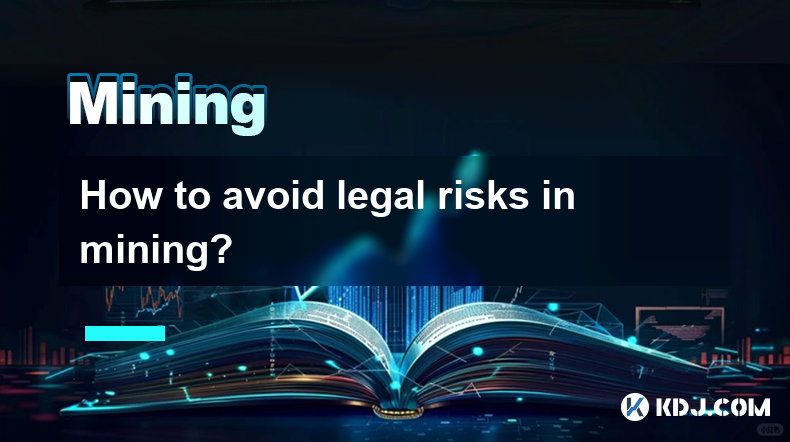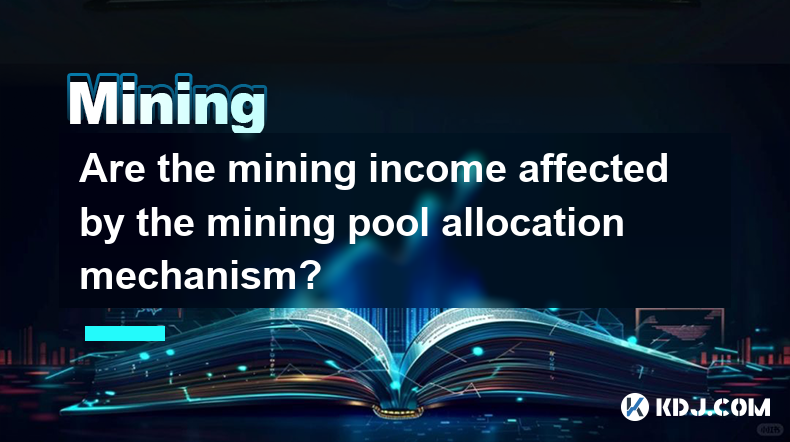-
 Bitcoin
Bitcoin $81,470.6259
-2.28% -
 Ethereum
Ethereum $1,790.7527
-2.95% -
 Tether USDt
Tether USDt $0.9999
0.03% -
 XRP
XRP $2.0607
-6.00% -
 BNB
BNB $591.1549
-2.91% -
 Solana
Solana $124.2009
-1.34% -
 USDC
USDC $1.0000
0.01% -
 Dogecoin
Dogecoin $0.1621
-5.61% -
 Cardano
Cardano $0.6372
-6.99% -
 TRON
TRON $0.2326
0.82% -
 Toncoin
Toncoin $3.8888
0.80% -
 Chainlink
Chainlink $13.0942
-5.24% -
 UNUS SED LEO
UNUS SED LEO $9.1023
-5.55% -
 Stellar
Stellar $0.2605
-3.86% -
 Avalanche
Avalanche $18.3294
-6.73% -
 Shiba Inu
Shiba Inu $0.0...01207
-4.91% -
 Sui
Sui $2.2362
-7.91% -
 Hedera
Hedera $0.1579
-8.64% -
 Polkadot
Polkadot $3.9790
-4.28% -
 Litecoin
Litecoin $81.6801
-5.49% -
 MANTRA
MANTRA $6.1848
-3.34% -
 Bitcoin Cash
Bitcoin Cash $291.7782
-5.06% -
 Dai
Dai $0.9999
-0.02% -
 Bitget Token
Bitget Token $4.4587
-4.83% -
 Ethena USDe
Ethena USDe $0.9999
-0.01% -
 Pi
Pi $0.6892
-10.83% -
 Hyperliquid
Hyperliquid $12.5163
-0.38% -
 Monero
Monero $215.9594
-0.93% -
 Uniswap
Uniswap $5.7942
-3.66% -
 Aptos
Aptos $5.1254
-4.01%
How to avoid legal risks in mining?
To avoid legal risks in crypto mining, understand tax laws, comply with AML/KYC, adhere to environmental regulations, and secure necessary licenses.
Mar 28, 2025 at 11:14 pm

How to Avoid Legal Risks in Cryptocurrency Mining
Understanding the Legal Landscape of Cryptocurrency Mining
Cryptocurrency mining, while potentially lucrative, operates within a complex legal framework that varies significantly by jurisdiction. Ignoring these legal nuances can lead to serious consequences, including hefty fines and even criminal charges. Understanding and adhering to these laws is crucial for responsible and legal mining operations. This article will explore key legal areas miners need to consider to mitigate risks.
Taxation of Cryptocurrency Mining Profits
One of the most significant legal considerations for miners is taxation. Tax authorities worldwide are increasingly scrutinizing cryptocurrency transactions, including mining profits. These profits are generally considered taxable income, and failure to report them accurately can result in severe penalties. Understanding your local tax laws regarding cryptocurrency is paramount. This includes determining the appropriate tax classification for your mining income (e.g., business income, capital gains) and accurately reporting your earnings. Consult with a tax professional specializing in cryptocurrency to ensure compliance.
Energy Consumption and Environmental Regulations
Cryptocurrency mining is energy-intensive. Many jurisdictions are implementing regulations to address the environmental impact of mining, focusing on energy consumption and carbon emissions. These regulations can include limitations on energy usage, carbon taxes, or requirements for using renewable energy sources. Miners must research and comply with these regulations to avoid penalties. This includes understanding permit requirements for operating mining facilities and potentially investing in sustainable energy solutions.
Compliance with Anti-Money Laundering (AML) and Know Your Customer (KYC) Regulations
Cryptocurrency's anonymity has made it attractive for illicit activities. Governments worldwide are implementing AML and KYC regulations to combat money laundering and terrorist financing. These regulations require cryptocurrency businesses, including mining operations, to verify the identities of their customers and report suspicious activities. Failure to comply can lead to significant fines and legal repercussions. Understanding and implementing robust AML/KYC procedures is crucial for responsible mining.
Data Privacy and Security Regulations
Mining often involves handling large amounts of data, including personal information of users interacting with the cryptocurrency network. Data privacy and security regulations, such as GDPR in Europe and CCPA in California, mandate the protection of personal data. Miners must ensure their operations comply with these regulations to avoid legal issues. This involves implementing strong security measures to protect user data and adhering to data privacy principles.
Licensing and Registration Requirements
Depending on the jurisdiction, cryptocurrency mining operations may require specific licenses or registrations. Some jurisdictions have specific regulations for cryptocurrency mining businesses, requiring licenses to operate legally. Failing to obtain the necessary licenses can result in fines and the shutdown of operations. Thoroughly researching and obtaining any required licenses is essential before commencing mining activities. This may involve registering your business and adhering to specific operational guidelines.
Intellectual Property Rights
Using copyrighted software or hardware in your mining operation can lead to legal problems. Ensure that all software and hardware used are legally licensed and that you are not infringing on any intellectual property rights. This includes understanding the terms of service of any mining pools or software you use. Failure to comply can result in lawsuits and significant financial penalties.
Avoiding Illegal Mining Activities
Engaging in activities such as mining cryptocurrencies using stolen electricity or participating in illegal mining pools can lead to severe legal consequences. Always ensure that your mining operations are conducted ethically and legally. This includes obtaining proper authorization for electricity usage and avoiding involvement in any illicit mining activities.
Steps to Minimize Legal Risks in Cryptocurrency Mining
- Thorough Legal Research: Conduct comprehensive research on all relevant laws and regulations in your jurisdiction before starting any mining operation.
- Consult Legal Professionals: Seek advice from lawyers specializing in cryptocurrency and taxation to ensure compliance with all applicable laws.
- Implement Robust AML/KYC Procedures: Establish and maintain thorough AML/KYC procedures to comply with anti-money laundering regulations.
- Maintain Accurate Records: Keep detailed records of all mining activities, including income, expenses, and energy consumption.
- Comply with Environmental Regulations: Adhere to all environmental regulations concerning energy consumption and carbon emissions.
- Secure Necessary Licenses and Permits: Obtain all required licenses and permits to operate legally.
- Protect Intellectual Property: Ensure that all software and hardware used are legally licensed.
- Regularly Update Knowledge: Stay informed about changes in cryptocurrency laws and regulations.
Frequently Asked Questions
Q: Are cryptocurrency mining profits taxable?
A: Yes, in most jurisdictions, cryptocurrency mining profits are considered taxable income. The specific tax treatment will vary depending on your location and the nature of your mining activities. It is crucial to consult with a tax professional.
Q: What are AML/KYC regulations, and how do they apply to mining?
A: AML (Anti-Money Laundering) and KYC (Know Your Customer) regulations require businesses to verify the identities of their clients and report suspicious activities. For miners, this might involve verifying the identities of individuals using your mining services or exchanging mined cryptocurrency.
Q: What are the environmental concerns related to cryptocurrency mining?
A: Cryptocurrency mining is energy-intensive, leading to concerns about its environmental impact, including carbon emissions and electricity consumption. Many jurisdictions are implementing regulations to address these concerns.
Q: Do I need a license to mine cryptocurrency?
A: The licensing requirements for cryptocurrency mining vary greatly depending on your location. Some jurisdictions require specific licenses, while others may not have specific regulations yet. It's crucial to research the regulations in your specific jurisdiction.
Q: What happens if I don't comply with cryptocurrency mining regulations?
A: Non-compliance can lead to a range of penalties, including fines, legal action, seizure of assets, and even criminal charges. The severity of the penalties will depend on the specific violation and the jurisdiction.
Disclaimer:info@kdj.com
The information provided is not trading advice. kdj.com does not assume any responsibility for any investments made based on the information provided in this article. Cryptocurrencies are highly volatile and it is highly recommended that you invest with caution after thorough research!
If you believe that the content used on this website infringes your copyright, please contact us immediately (info@kdj.com) and we will delete it promptly.
- Dogecoin (DOGE) Price Could Witness Massive Growth If It Serves as a Payment Method Across the Elon Musk Ecosystem
- 2025-03-31 18:00:12
- Elon Musk Quashes Hopes of Dogecoin (DOGE) Being Included in the U.S. Department of Government Efficiency (D.O.G.E.)
- 2025-03-31 18:00:12
- Musk Clarifies $DOGE and DOGE are Different, Dogecoin Prices Plummet
- 2025-03-31 17:55:12
- Bitcoin (BTC) Price Will Explode Higher as Liquidity Surges, Raoul Pal Predicts
- 2025-03-31 17:55:12
- Bearish Clouds Continue to Hover Over the Crypto Markets, BTC Drops Below $82K
- 2025-03-31 17:50:12
- With a Growing Community, Built-in AI Utility, and a Presale Heating Up Fast, It's Drawing Early Comparisons to SHIB's Legendary Rise
- 2025-03-31 17:50:12
Related knowledge

Are the mining income affected by the mining pool allocation mechanism?
Mar 31,2025 at 05:49pm
Understanding Mining Pool Allocation MechanismsMining pools aggregate the hashing power of many miners to increase the chances of successfully mining a block. The reward for successfully mining a block is then distributed among the pool's participants based on their contribution – usually measured in shares submitted. The allocation mechanism determine...

Why is mining algorithm more suitable for graphics card processing?
Mar 31,2025 at 05:28pm
The Parallel Processing Power of GPUs in Cryptocurrency MiningThe core reason why many cryptocurrency mining algorithms are more suitable for graphics card (GPU) processing lies in their inherent architecture. GPUs are designed for parallel processing, handling many calculations simultaneously. This contrasts with CPUs, which excel at sequential proces...

How to solve the cooling problem of graphics card mining?
Mar 31,2025 at 02:35pm
Understanding GPU Cooling in Cryptocurrency MiningGraphics cards (GPUs) generate significant heat during cryptocurrency mining, demanding efficient cooling solutions to prevent damage and maintain optimal performance. Overheating can lead to reduced hash rates, instability, and even permanent hardware failure. This necessitates a proactive approach to ...

What is the computing power distribution mechanism of mining apps?
Mar 31,2025 at 03:56pm
Understanding Hashrate Distribution in Mining AppsMining apps, used to participate in the Proof-of-Work (PoW) consensus mechanism of cryptocurrencies like Bitcoin, rely on a distributed network of miners contributing computing power. This power, measured in hashes per second (hashrate), isn't evenly distributed. Understanding how it's allocated is cruc...

How to deal with policy risks when mining mining, which can earn 2,000 yuan a day?
Mar 31,2025 at 05:00pm
How to Deal with Policy Risks When Mining, Aiming for 2,000 Yuan Daily Profit? Understanding the Volatility of Cryptocurrency MiningMining cryptocurrencies, with the goal of a 2,000 yuan daily profit, is incredibly ambitious and inherently risky. This ambition hinges heavily on several factors, including the chosen cryptocurrency, the hash rate of your ...

Quality requirements for capacitors and components of mining power supplies
Mar 29,2025 at 02:57pm
The Crucial Role of Power Supply Components in MiningMining cryptocurrencies, especially those using Proof-of-Work consensus mechanisms, demands significant computational power. This translates to a high power consumption, placing immense strain on the power supply units (PSUs) of mining rigs. The reliability and longevity of these PSUs are directly ti...

Are the mining income affected by the mining pool allocation mechanism?
Mar 31,2025 at 05:49pm
Understanding Mining Pool Allocation MechanismsMining pools aggregate the hashing power of many miners to increase the chances of successfully mining a block. The reward for successfully mining a block is then distributed among the pool's participants based on their contribution – usually measured in shares submitted. The allocation mechanism determine...

Why is mining algorithm more suitable for graphics card processing?
Mar 31,2025 at 05:28pm
The Parallel Processing Power of GPUs in Cryptocurrency MiningThe core reason why many cryptocurrency mining algorithms are more suitable for graphics card (GPU) processing lies in their inherent architecture. GPUs are designed for parallel processing, handling many calculations simultaneously. This contrasts with CPUs, which excel at sequential proces...

How to solve the cooling problem of graphics card mining?
Mar 31,2025 at 02:35pm
Understanding GPU Cooling in Cryptocurrency MiningGraphics cards (GPUs) generate significant heat during cryptocurrency mining, demanding efficient cooling solutions to prevent damage and maintain optimal performance. Overheating can lead to reduced hash rates, instability, and even permanent hardware failure. This necessitates a proactive approach to ...

What is the computing power distribution mechanism of mining apps?
Mar 31,2025 at 03:56pm
Understanding Hashrate Distribution in Mining AppsMining apps, used to participate in the Proof-of-Work (PoW) consensus mechanism of cryptocurrencies like Bitcoin, rely on a distributed network of miners contributing computing power. This power, measured in hashes per second (hashrate), isn't evenly distributed. Understanding how it's allocated is cruc...

How to deal with policy risks when mining mining, which can earn 2,000 yuan a day?
Mar 31,2025 at 05:00pm
How to Deal with Policy Risks When Mining, Aiming for 2,000 Yuan Daily Profit? Understanding the Volatility of Cryptocurrency MiningMining cryptocurrencies, with the goal of a 2,000 yuan daily profit, is incredibly ambitious and inherently risky. This ambition hinges heavily on several factors, including the chosen cryptocurrency, the hash rate of your ...

Quality requirements for capacitors and components of mining power supplies
Mar 29,2025 at 02:57pm
The Crucial Role of Power Supply Components in MiningMining cryptocurrencies, especially those using Proof-of-Work consensus mechanisms, demands significant computational power. This translates to a high power consumption, placing immense strain on the power supply units (PSUs) of mining rigs. The reliability and longevity of these PSUs are directly ti...
See all articles






















































































